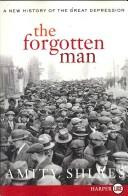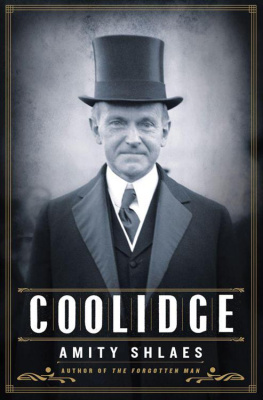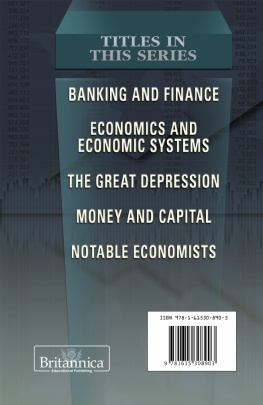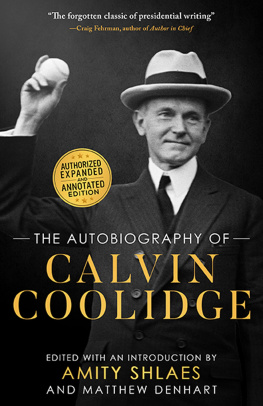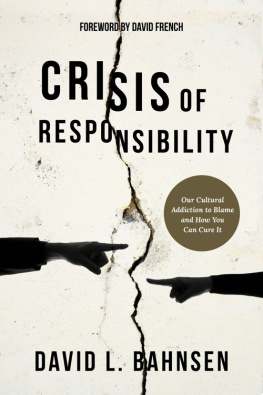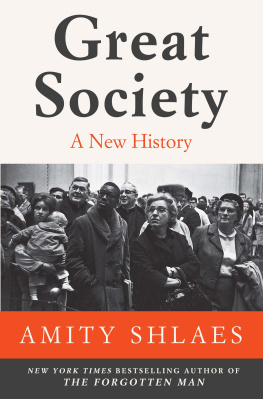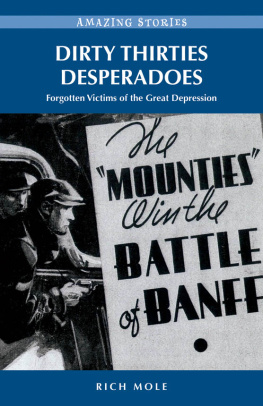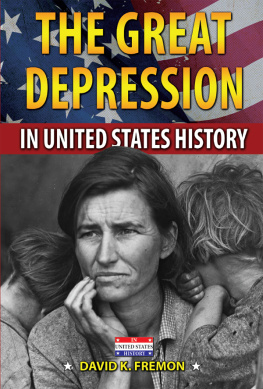Amity Shlaes - The Forgotten Man: A New History of the Great Depression
Here you can read online Amity Shlaes - The Forgotten Man: A New History of the Great Depression full text of the book (entire story) in english for free. Download pdf and epub, get meaning, cover and reviews about this ebook. year: 2007, publisher: HarperCollins, genre: Science. Description of the work, (preface) as well as reviews are available. Best literature library LitArk.com created for fans of good reading and offers a wide selection of genres:
Romance novel
Science fiction
Adventure
Detective
Science
History
Home and family
Prose
Art
Politics
Computer
Non-fiction
Religion
Business
Children
Humor
Choose a favorite category and find really read worthwhile books. Enjoy immersion in the world of imagination, feel the emotions of the characters or learn something new for yourself, make an fascinating discovery.
- Book:The Forgotten Man: A New History of the Great Depression
- Author:
- Publisher:HarperCollins
- Genre:
- Year:2007
- Rating:5 / 5
- Favourites:Add to favourites
- Your mark:
- 100
- 1
- 2
- 3
- 4
- 5
The Forgotten Man: A New History of the Great Depression: summary, description and annotation
We offer to read an annotation, description, summary or preface (depends on what the author of the book "The Forgotten Man: A New History of the Great Depression" wrote himself). If you haven't found the necessary information about the book — write in the comments, we will try to find it.
The Forgotten Man: A New History of the Great Depression — read online for free the complete book (whole text) full work
Below is the text of the book, divided by pages. System saving the place of the last page read, allows you to conveniently read the book "The Forgotten Man: A New History of the Great Depression" online for free, without having to search again every time where you left off. Put a bookmark, and you can go to the page where you finished reading at any time.
Font size:
Interval:
Bookmark:

A New History of the Great Depression

for my parents
These unhappy times call for the building of plans that rest upon the forgotten, the unorganized but the indispensable units of economic power, for plans like those of 1917 that build from the bottom up and not from the top down, that put their faith once more in the forgotten man at the bottom of the economic pyramid.
G OV. F RANKLIN R OOSEVELT OF N EW Y ORK,
RADIO ADDRESS IN A LBANY, A PRIL 7, 1932
As soon as A observes something which seems to him to be wrong, from which X is suffering, A talks it over with B, and A and B then propose to get a law passed to remedy the evil and help X. Their law always proposes to determine what C shall do for X, or in the better case, what A, B, and C shall do for X. What I want to do is to look up C. I want to show you what manner of man he is. I call him the Forgotten Man. Perhaps the appellation is not strictly correct. He is the man who never is thought of.
He works, he votes, generally he praysbut he always pays.
W ILLIAM G RAHAM S UMNER, Y ALE U NIVERSITY, 1883
Epigraph
Introduction
The Beneficent Hand
The Junket
The Accident
The Hour of the Vallar
The Experimenter
A River Utopia
A Year of Prosecutions
The Chicken Versus the Eagle
Photographic Insert
Roosevelts Wager
Mellons Gift
Roosevelts Revolution
The Man in the Brooks Brothers Shirt
Black Tuesday, Again
Brace Up, America
Willkies Wager
Coda
Acknowledgments
Bibliographic Notes
Selected Bibliography
Searchable Terms
About the Author
Other Books by Amity Shlaes
Cover
Copyright
About the Publisher
ONE NOVEMBER EVENING LONG AGO in Greenpoint, Brooklyn, a thirteen-year-old named William Troeller hanged himself from the transom in his bedroom. The boy had watched his family slide into an increasingly desperate situation. The gas for their five-room apartment on Driggs Avenue had been shut off since April. His father, Harold, had lost his job at Brooklyn Edison after suffering a rupturea workers hernia, probably. While the father waited for surgery in Kings County Hospital, Mrs. Troeller and six children waited too. Ruth, eighteen, wanted to work as a waitress, but she was unemployed. Harold Jr., twenty-one, had work in a government program. Harold told a newspaper reporter that his brother was sensitive and always felt embarrassed about asking for his share at mealtime. The Herbert Street police station near the Troeller home helped to arrange the funeral. Burial would be in a Catholic cemetery. He Was Reluctant about Asking for Food, read the headline in the New York Times. New York that year had a Dickensian feelan un-American feel.
William Troeller was just one story in a city of troubled stories. Across the East River, at an office desk at 20 Pine Street, a utilities executive named Wendell Willkie had spent the fall watching and pondering the downturn. Equally concerned was another executive who worked a block south of Willkie at 120 Wallthe vice president of American Molasses, an agriculture expert named Rexford Tugwell. Both men knew what the boy had probably only sensed: the despair was deep. Later in fact it would emerge that the birthrate that November, the month of Williams suicide, was the second lowest on record for November for the city. A few weeks prior to Williams act the Dow had dropped nearly 8 percentthe day had already come to be known as Black Tuesday.
It was a dark moment for the country as well. Willkie came from farm territoryIndiana. The next year two in ten Indiana families would collect some form of relief. Willkie had bought up a number of farms, in part to conduct a little experiment for himself: he wanted to see whether farming was still possible in America.
The Indiana story replicated itself across the states. A year before William Troellers suicide, the Brookings Institution, a new think tank, had warned that the balance of the economy was precarious. The economy was tipping. Nationally, durable manufacturingthe most important single meter on the dashboard of the economic enginewas plummeting, and more rapidly than anyone could remember. Unemployment was moving up by the millions. The next spring, the spring after William Troellers death, one in five American men would be unemployed. Watching from Britain, the Economist would conclude in retrospect that the United States seemed to have forgotten, for the moment, how to grow.
Yet Washington was doing all the wrong things. Officials in the capital seemed arrogant, obsessed with numbers, and oblivious to the pain the nation was suffering. People were angry that Congress and the president had recently raised taxes. With business so hard, why make it harder?
The very week of William Troellers suicide, the treasury secretary went before an audience from the Academy of Political Science at the Hotel Astor. The secretary was so anxious about the speech that he had insisted that the president approve it. At his side stood Parker Gilbert, one of the old conservatives from the happy 1920s. There had been a national emergency in the past, the secretary told listeners. But now it no longer existed. The secretary then went on to conclude that the country must now continue progress toward a balance of the federal budget.
A member of the audience laughed out loud in shock. The remark seemed so much at odds with the painful reality of that November. That week, there would be an article in the paper about Herbert Hoover. But it did not carry news of his views on the crisis. The article merely covered the fact that Hoover had traveled to Colby College in Waterville, Maine. Maine was one of the states that had voted for him, and now Colby would give Hoover yet another of his many honorary degrees.
The story sounds familiar. It is something like the descriptions we hear of the Great Crash of 1929. But in fact these events took place in the autumn of 1937. This was a depression within the Depression. It was occurring five years after Franklin Roosevelt was first elected, and four and a half years after Roosevelt introduced the New Deal. It was taking place eight years after President Herbert Hoover first made his own rescue plans following the 1929 stock market crash. Washington had already made thousands of efforts to help the economy, yet those efforts had not brought prosperity. Rex Tugwell, the man at American Molasses, had led many campaigns, but now he had retreated to New York to reevaluate a record that counted too many failures.
The standard history of the Great Depression is one we know. The 1920s were a period of false growth and low morals. There was a certain godlessnessthe Great Gatsby imageto the decade. The crash was the honest acknowledgment of the breakdown of capitalismand the cause of the Depression. A dangerous inflation caused by speculating margin traders brought down the nation. There was a sense of a return to a sane, moral country with the crash. A sense that the economy of 1930 or 1931 could not revive without extensive intervention by Washington. Hoover, it was said, made matters worse through his obdurate refusal to take control, his risible commitment to what he called rugged individualism. Roosevelt, however, made things better by taking charge. His New Deal inspired and tided the country over. In this way, the country fended off revolution of the sort bringing down Europe. Without the New Deal, we would all have been lost.
Next pageFont size:
Interval:
Bookmark:
Similar books «The Forgotten Man: A New History of the Great Depression»
Look at similar books to The Forgotten Man: A New History of the Great Depression. We have selected literature similar in name and meaning in the hope of providing readers with more options to find new, interesting, not yet read works.
Discussion, reviews of the book The Forgotten Man: A New History of the Great Depression and just readers' own opinions. Leave your comments, write what you think about the work, its meaning or the main characters. Specify what exactly you liked and what you didn't like, and why you think so.

